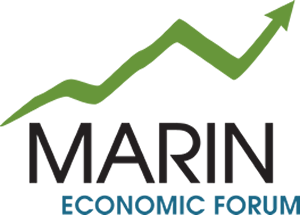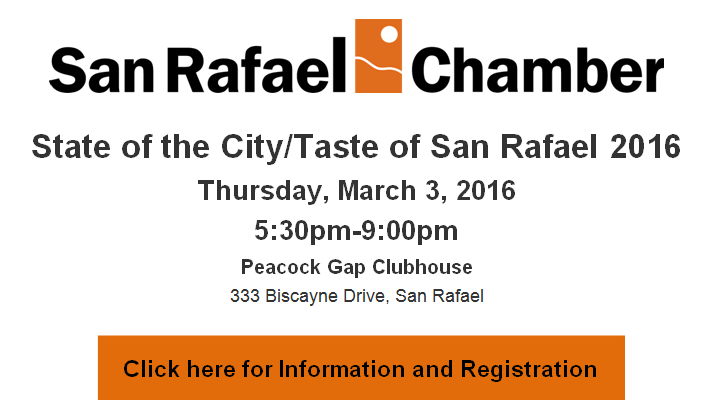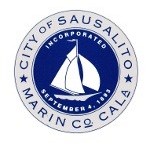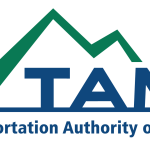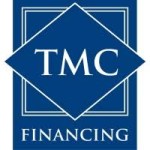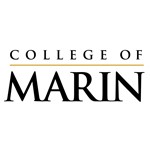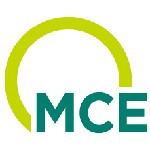MEF Newsletter January 2016
January 2016
 Economic Outlook for 2016
Economic Outlook for 2016
Happy New Year! I hope all of you are having a good start to 2016.
I’m sure everyone is interested at how the economy looks for the upcoming year. We should be seeing a global economy that will be a challenge, which may affect interest rates and housing prices. However, Marin County has a good outlook for 2016. Marin is a destination for both residents (housing demand) and also for life-sciences businesses. In 2016 there will be a number of socioeconomic and political issues that may dominate the local policy scene, but may also have some dampening effects on the economy due to general uncertainty. These issues include, but are not limited to, the continued California drought, the presidential election, and the potential legalization of marijuana and other 2016 ballot measures, just to name a few. If you’d like to learn more about the economic outlook for 2016, please come to the Marin Business Forum event “State of the Economy: Thinking about Economic and Social Issues as 2016 Unfolds,” on January 21st, 2016, from 5 PM to 7PM. For more information and registration, please go the MBF’s event page.
Last week I was honored to be able to speak at a Marin Coalition luncheon about the economic outlook for 2016. The Marin Coalition, now in its 41st year, works to protect and improve the economic, social, and environmental welfare of Marin County. It was a wonderful event with a very engaged audience. Many of the audience questions were around the environment, economic growth in Marin, and the on-going housing and transportation issues. If you would like to view a recording of the event, please check out the Marin Coalition YouTube page.
Before we completely leave behind 2015, I would like to highlight the Center for Volunteer & Nonprofit Leadership (CVNL) 23rd Annual Heart of Marin™ Awards, which was held on January 7th, 2016. These awards recognize outstanding nonprofits and the committed individuals who serve them. This year nearly 900 people gathered at the ceremony to recognize the nominees and winners in eight categories. I would like to thank Linda Davis, CEO of CVNL, and all of the CVNL staff for putting together such a fabulous event. I highly recommend everyone take a look at the Heart of Marin™ page to see all the winners and nominees.
Best wishes to everyone for a prosperous start to 2016, and as always, thank you for your interest, engagement and participation with Marin Economic Forum.

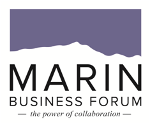
State of the Economy
“Thinking about Economic and Social Issues as 2016 Unfolds”
Thursday January 21, 2016 from 5 PM to 7 PM
Where: Wood Island, 80 East Sir Francis Drake Blvd., Larkspur map
Marin Economic Forum Chief Economist Dr. Robert Eyler will provide a brief overview of the global, national, state and regional economy as 2016 unfolds. Part of the economic forecast is what social and political issues are coming up for the state of California and Marin County in 2016 as we face major elections in June and November. Topics will consider the effects of raising the minimum wage from $10 (effective Jan 1, 2016 in California) to perhaps $15 in Marin County, issues of rent control, the beginning of SMART rail, and continued concerns over local talent all are brewing. Rob will engage the crowd a bit in this discussion, as there are no easy answers but we will also be asked to find some answers (or fund some) soon.

John Starr, 1965-2016
Radiolands, Founder and CEO; Chapter Director for Startup Grind North Bay; Actor, Producer and Entrepreneur
It is with great sadness that we say goodbye to our friend and colleague John Starr. He passed away on Saturday evening, January 9, 2016.
A San Anselmo resident, John worked in the San Francisco Bay Area Entertainment and Technology fields for more than 20 years. He helped start two venture-funded tech companies, managed computer networks for several large non-profits, taught computer skills to journalists, and produced or acted in many media projects. His voice can be heard on commercials, corporate narrations and award-winning children’s audio books.
John volunteered his time as Chapter Director for Startup Grind North Bay, an event series and website designed to help educate, inspire, and connect local entrepreneurs. He was always pushing entrepreneurship to the next level and was dedicated to fostering the entrepreneurial spirit in the startup business community.”
John was also a loyal member of the Marin Economic Forum’s Technology Entrepreneurs Group, bringing his passion for entrepreneurial endeavors to our community with his exuberance, passion and knowledge. We are thankful for his contributions and the opportunity to work with him; he will be missed by all.
Our community sends caring thoughts to his family. May they find solace during this difficult time.
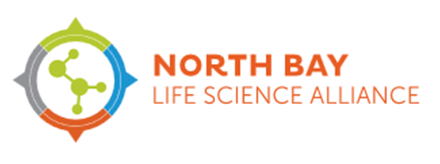 Chris Stewart
Chris StewartCity of Novato, Economic Development Manager
MEF Executive Board Member
The Life Science industry is one of the fastest growing sectors in the US and continues to grow by more than 10% each year. The North Bay region continues to grow and advance biomedical innovation and to bring new medical advances to patients.
 Led by Christopher Stewart, Chairman and CEO, the North Bay Life Science Alliance (NBLSA) is a group of life science professionals, educators and public leaders working together to build awareness of the North Bay region’s many advantages as a location for companies operating in the Life Sciences industry. The Alliance was formed in 2014 with funding from the City of Novato and in-kind support from The Buck Institute for Research on Aging.
Led by Christopher Stewart, Chairman and CEO, the North Bay Life Science Alliance (NBLSA) is a group of life science professionals, educators and public leaders working together to build awareness of the North Bay region’s many advantages as a location for companies operating in the Life Sciences industry. The Alliance was formed in 2014 with funding from the City of Novato and in-kind support from The Buck Institute for Research on Aging.
As well as marketing the region as a relocation destination for life science companies, the NBLSA assists and advocates for the region’s established biotech companies. This assistance has resulted in major impacts, including helping Novato-based Ultragenyx Pharmaceutical Inc to secure $2.1 million in California tax credits.
Since the inception of NBLSA, the region has seen a 600% increase in life science jobs from a ten year trend of 50 new life science positions a year to 350 in 2014/2015, boosting the local economy by an estimated $100.8 million annually.
NBLSA has big plans for 2016, including a presence, along with Marin Economic Forum, at BIO 2016, the global event for biotechnology, which takes place from June 06-09, 2016 at the Moscone Center, San Francisco. After the convention, the NBLSA is running a Tour of the North Bay to introduce executives from 80 international life science companies to the region, which will include an orientation tour, presentations at The Buck Institute, and a chance to network with local company executives.
The Alliance is also planning a direct marketing campaign to promote the region to life science executives in San Francisco and the South Bay, where biotech start ups and SMEs are being squeezed out of commercial properties by rent increases fuelled by the growing technology sector. The NBLSA, in association with Marin Economic Forum, aims to communicate that there are vacant properties, lab space, world-class research facilities and a vibrant and growing industry cluster here in the North Bay, where commercial properties are available at an average of 38% less than San Francisco Metro rents.
Established companies are motivated to relocate to the North Bay for its attractive blend of location and lifestyle. The North Bay provides easy access to the city of San Francisco, excellent transportation infrastructure and is central positioning between UC San Francisco, UC Davis and UC Berkeley, and many are attracted to the Northern California climate and beautiful natural landscape offered by the region.
Find out more at www.nblsa.com or by contacting Christopher Stewart at 415.899.8902

January
February
March
 Spotlighting the Best Marinnovations™ in Education
Spotlighting the Best Marinnovations™ in EducationBy Michael Leifer, CEO Guerilla PR / Ecodads
Interview with Zack Karlsson, CEO & Director, ChangeMyPath, Education Technology
Given that the Digital Education Industry Market Size is approximately worth $51.5 Billion, (according to the Ambient Insight Research) and that “Gamification” processes are effectively being used by the corporate world to train employees at Apple, Oracle, Twitter, Salesforce and other large firms, it seemed worth exploring if any local companies were focused on this nexus.

So, I attended a nearby BASN (Bay Area Startup Network) and US Angel Investors and met David Mandel, a very successful serial entrepreneur and seed investor, who had launched an exciting new education start-up called ChangeMyPath. He introduced to his CEO and fellow Board Member Zack Karlsson, with whom I conducted the below interview.
 Michael: What’s your background in the video game business?
Michael: What’s your background in the video game business?
Zack: I’ve been in the industry for about 15 years starting out at the bottom as a Game Master for EverQuest and worked my way up to VP at Capcom (market cap $1.2B) and have held senior positions at independent developers like Double Fine and big gaming industry publishers like Namco. By trade, I’m a Business Development guy. I’ve built a career on being a games guy on the business side of things.
Michael: How did Change My Path come about?
Zack: My co-founder, David Mandel, came to me looking for a CEO for a startup he was trying to put together. David is a serial entrepreneur and seed investor but with no experience in games and he wanted to put together a company around a gaming concept that he had developed with his daughter and the person who is now our co-founder and CTO, Stephen Williams. David and I spent a month or so trying to find a way that I was excited about the concept and just couldn’t find it, but through the process, we found a really nice working relationship and thought we could do something cool.
David asked me if I could do anything with my next career, without limitation, what would it be? I had heard a talk, years ago, by Ted Price on the future of games and what the world may look like 10 years from now with games as a focus. Ted was bold — it wasn’t the same old talk about BRIC, digital distribution, free-to-play etc. It was audacious and wonderful and inspired me. I spent the next couple years refining my retirement idea: When I was old and didn’t need money, what would I do with my free time? This was it. I pitched it to David and, somewhat surprisingly, he was convinced. We looped in Stephen as CTO to help us flesh out the tech and parts of the concept, and we were off to the races. It’s an idea that I thought was too big and too crazy for someone else to jump in on, but David saw the dream and then we got Stephen hooked, and we set about making it happen.
Michael: What have the power of smartphones and tablets opened up for you?
Zack: It has given us the ability to deliver digital content to anyone anywhere, but more importantly, it’s given us a broader general market in which to compete. It’s allowed people who never self-identified as gamers and let them participate in entertainment that isn’t strictly one-way. It’s given us a challenge on user interface design — gone are the days when you had a 13 button controller to design around, now you have to think about touch, 3D, motion sensing, Augmented Reality, and a litany of input devices. The most important thing for us is the ubiquity of smartphones. For CMP, we can reach anyone, anywhere, at a time that is convenient for them.
Michael: How are you using gamification with Change My Path?
Zack: Gamification for us is split into two parts. 1) Taking educational content and making it engaging and fun. There is a wealth of experience in this particular endeavor from the old Oregon Trail and Carmen San Diego games I used to play as a kid to the content done by Broderbund, The Learning Company, and many others. The question hasn’t yet been answered if this kind of content can be educationally transformative. In other words, does it leave a lasting impact on peoples’ lives? Could it? We think it can. We think that the content has, with no offense intended to others in the space, been designed primarily by educators rather than entertainers.

Everything we know about learning is that it works best when people are engaged and yet, we think it perfectly natural, as adults, to pay tuition to an institution of higher learning and, once the tuition is paid, it becomes our job to learn rather than their job to teach. The engagement factor goes to 0. What happens when content gets subjected to an open market, where people get to make decisions about learning that engages them first? Where the content isn’t simply a lecture and a quiz?

We live in an age with some incredible interactive entertainment but so little of that content has peripheral learning engaged, or value beyond simply being entertaining. There is virtue in pure entertainment, but there is also virtue in using the skills we have learned as an industry to help bring someone job skills or knowledge that will help them better their lives. And 2) It is about taking the process of the consumption of educational content and adding gamification to it.
This is not particularly innovative, but it has, to my knowledge, not been done well before. There are some parts of this that exist in different platforms that are out there, but most of those platforms fall short on understanding the motivation loop that is the foundation and driver of the gaming industry: action, value, outcome. In our example, taking a class is the action, learning something is the value, but where is the outcome? Most of us don’t learn just to learn — it’s a noble pursuit, learning for learning’s sake, but it’s a conceit primarily reserved for the privileged. Most of us take a class so we can learn something so we can get a job, a promotion, or benefit our career. We may be one of the first to take classic gaming compulsion loops and apply it to progression through content that has secondary value.
